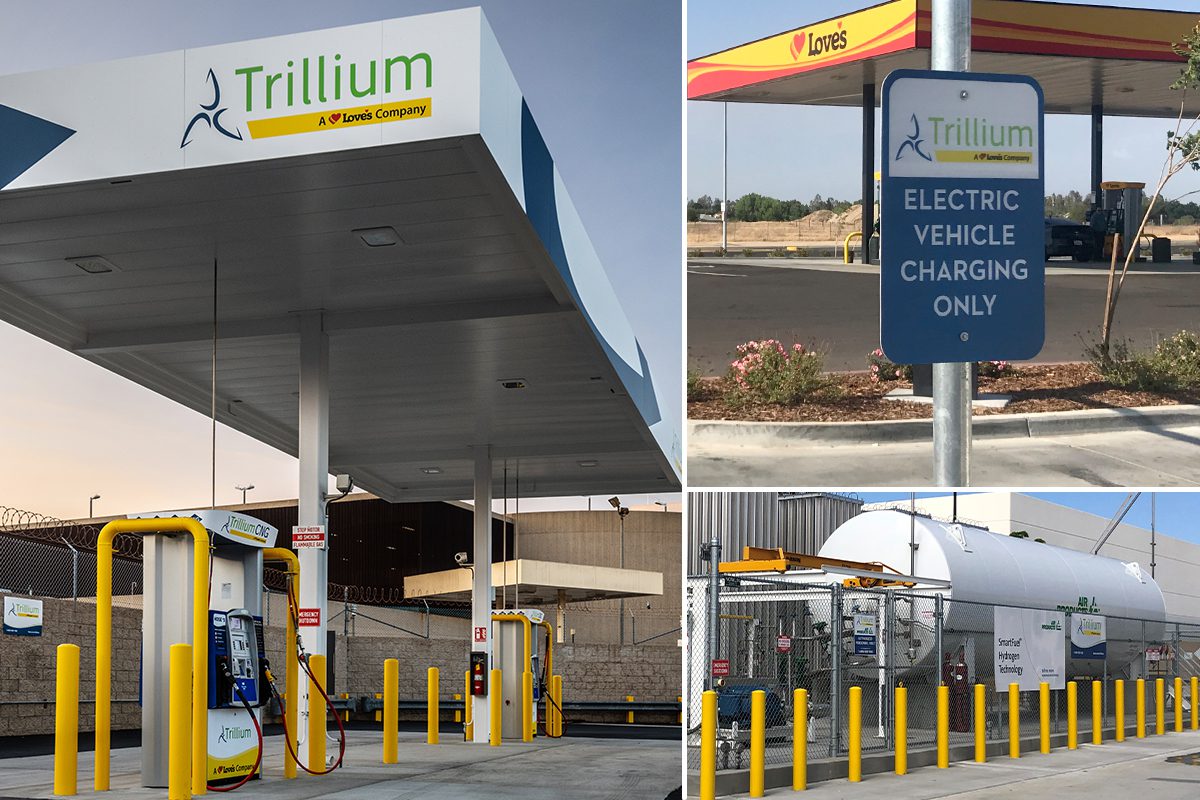There is a growing need to help fleets determine their environmental footprint and make the changes needed to meet their sustainability goals. Fleets are discovering the value of partnering with an experienced fuel solutions provider to not only help with that assessment but also deliver a matrix of multiple fuels and technologies that will fit their operational needs today and well into the future.
“The vast Love’s and Trillium network of fueling solutions across the country is already able to meet diverse fueling needs. For fleets that are considering how to reduce emissions and where to start—we are a one-stop-shop that can provide electric vehicle charging, CNG, hydrogen, renewable diesel fuel all the way to traditional diesel fuel and diesel exhaust fluid — the ultimate matrix, wherever a fleet needs it to be,” said Ryan Erickson, vice president of Love’s and managing director of Trillium. “We work to help fleets determine their environmental goals and find the diverse mix and match of low-, and even negative-carbon, solutions to help meet their sustainability priorities.”
Trillium started operations in 1995 and was initially focused on developing CNG stations, providing high flow and high performance fueling for fleets, with a focus on transit fleets. As the transition to a broader range of clean fuels, particularly renewables, started gaining attention from fleets nationwide, Trillium began investing more heavily in renewable natural gas (RNG) which is the fuel provider’s largest area of growth. The Love’s Family of Companies including Love’s Travel Stops and Country Stores, acquired Trillium in 2016, expanding the focus of CNG and RNG to a much wider and diverse world of fueling including investments in hydrogen and green hydrogen fueling and EV charging stations. Trillium can supply an onsite fueling station on the same yard the fleet vehicles are stored or on off-site premises with any clean fuel needed as fleets evolve and grow.
Current fueling solutions will need to evolve with developments in technology and future proofing fueling stations is critical. The ability to expand and add fueling options as new technologies and vehicles are added will ensure the fleet is prepared for future growth. For example, some fleets are incorporating solar panels for electric vehicle charging, as onsite solar systems offset electricity from the utility grid, often providing significant cost savings during peak-hours when demand charges are at their highest levels.
Trillium works with customers to identify the clean fuel and power supply sources that work best for their fuel station – balancing cost, reliability, deployment timelines, sustainability goals, location, and scale. The core goal is to ensure customers have access to a steady supply of clean fuel at predictable prices, and that they avoid paying unnecessary charges related to transmission, distribution, or demand.
This full-service approach to fueling has led to rapid growth for the Trillium team, including new team members focused specifically on Southern California, an area of the country with tremendous interest and investment in emerging technologies to help fleets reduce emissions. No matter what fuel is needed, Trillium can partner with fleets at any stage of a project development to help maximize efficiency, cost savings, and operating performance.
“Our goal is to work with a fleet to understand how to continue to provide critical services and reduce their carbon footprint while also being cost effective. Reliability, cost effectiveness and fuel efficiency are key for every vehicle in every fleet regardless of the powertrain,” said Erickson. “We also help them to understand how their goal might be easier in some locations but could be an entirely different solution for another part of the country. This might be a private behind-the-fence fuel depot in more urban areas with Trillium, and then also the extensive locations with the Love’s network that are already conveniently located along major goods movement routes.”



